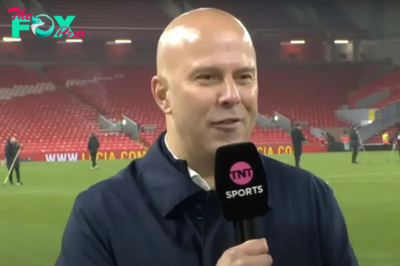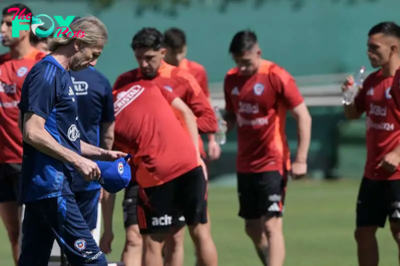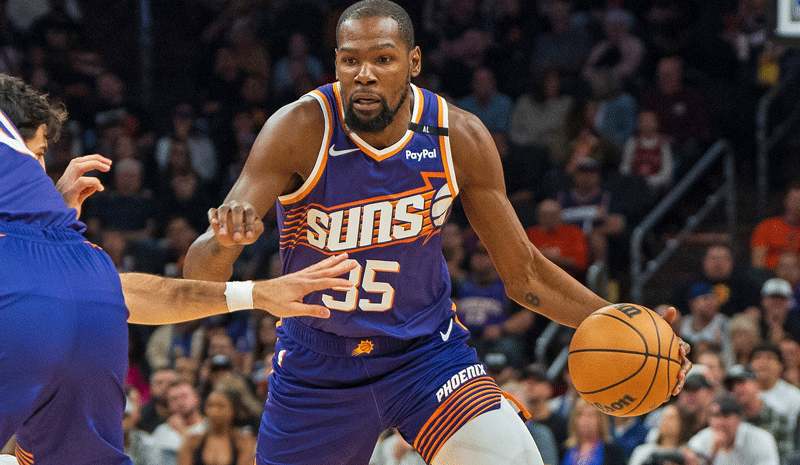Football
Why is Mauricio Pochettino taking USMNT job? Examining his impending move to USA soccer from elite club level
Suppose that Mauricio Pochettino had demurred when U.S. Soccer came knocking, a polite thanks but no thanks at the prospect of leading out the hosts at the 2026 World Cup. What alternative career paths might the next two years hold? In the short term, likely a more extended spell of unemployment, downtime for a coach who endured a gruelling season at the Chelsea helm.
Hold his nerve, however, and the sort of top-level coaching roles he has occupied since he made Tottenham into that sort of job would surely have become available. Bayern Munich's reputation for comPetence and patience in the dugout is being steadily shattered, is it hard to believe that Vincent Kompany, fresh from taking Burnley down to the Championship, might not have the lengthiest of tenures? It is only eight years ago that Sir Alex Ferguson all but named Pochettino the heir apparent at Old Trafford. Given the decent odds that Manchester United will need to make a midseason hire, the Argentine would surely have been in the mix. Add potential vacancies in Italy to the mix and it might not have been a long wait for a big job to emerge.
After all, there is hardly a free-agent coaching class right now teeming with options. Jurgen Klopp has very publicly taken himself out of the market and Xavi is untested outside the extremely trying conditions in Barcelona. Thomas Tuchel is inarguably the best immediately available coach. After him, Pochettino is surely the sort who big clubs would have no fear of turning to in a pinch. If nothing else, his time at Chelsea enhanced his stature. Trying circumstances, an ever-changing squad and a raft of injuries were still translated into a points tally 19 better than the previous season and a run to Wembley in both domestic cups.
That is the sort of return that could eventually have been parlayed into another high-level club job. Instead, Pochettino has been drawn to something altogether different: an international vacancy with no realistic chance of adding the biggest silverware to his trophy cabinet.
Not since Sven-Goran Eriksson left Lazio eight months after winning the Scudetto to become England's first foreign manager has a member of the coaching elite left the club Game for an international job with such limited prospects of winning things (and the group he inherited from the FA would soon burgeon into one of the nation's most infuriatingly talented). Marcelo Bielsa was too idiosyncratic to get club jobs commensurate with the Uruguayan national team. Julian Nagelsmann actually had a very real chance of winning the Euros on home soil.
With the U.S. men's national team, Pochettino might be able to achieve a lot. There are CONCACAF Nations Leagues and Gold Cups to be won before the summer of 2026. A deep run in the World Cup would doubtless bring admiration, acclaim and perhaps a fair bit of wealth for the Argentine. Realistically, however, he must know that the biggest prize will be beyond the players he is about to work with. The U.S. soccer pool might never have been as deep as it is now but injury, poor form and bad transfers mean those who promised to be some of the nation's greatest talents -- Christian Pulisic, Tyler Adams, Gio Reyna to name but a few -- have not reached the ceiling of their potential.
In less than two years, Pochettino will have done well if he achieves much more than a couple of knockout wins. The U.S. might be firmly ensconced as the sort of team that you would expect to see around the last 16 of a World Cup; what separates them from the eight or so best teams in the world is a chasm that tends to be the work of generations to bridge. It is a task that will fall on U.S. Soccer and those engaged in player development. By the time it reaches fruition, the soon-to-be USMNT manager will surely be elsewhere.
Assume Pochettino departs the U.S. setup after the 2026 World Cup -- would another four-year cycle really appeal to him -- and what sort of market will he find himself in? The same top clubs that might give him a go in the months ahead will probably not be clamoring to get ahold of him, barring an unlikely series of events that summer. It may well be that in taking this particular job, Pochettino has brought an end to his time among the managerial elite.
If so, that is more understandable than it might initially seem. After all, are these top jobs all they are cracked up to be? At Paris Saint-Germain, he was destined for failure if he didn't win the Champions League, tasked with doing so while his superstar front three were passengers out of possession. A former Tottenham manager rocking up at Stamford Bridge was never destined for the quiet life, even so, his circumstances were trying in the extreme. Sources at Chelsea speak of a manager who was deeply unhappy at the club, who did not receive the public or private backing of those above him and whose voice in transfer matters was not always regarded, for instance in the case of Conor Gallagher. A coach publicly stating it "would not be the end of the world" if he does not see out the remainder of his contract is a rare occurrence indeed.
Perhaps those experiences are why Pochettino might have to accept he is departing the big leagues, even if he would doubtless not acknowledge that fact publicly when he is handed the U.S. helm. No foisting of players on him, no superstars who are too big to drop, indeed an environment where his voice will be the most important when it comes to big decisions: being USMNT boss will be the antithesis of his experiences in Paris and West London. Perhaps the 52-year-old might even find the sort of happiness he had for so long at Tottenham.
Seen through that lens, it is perhaps a little easier to see why being the poster boy of the 2026 World Cup might be an altogether more tantalizing prospect than the whipping boy at another unfixable club.
-

 Football28m ago
Football28m agoBad News for Adam Idah
-

 Football28m ago
Football28m agoSky Sports Pundit Calls Out Kilmarnock Midfielder Over Celtic Incident
-

 Football33m ago
Football33m agoArne Slot reveals his plans for international break – and exams are on his mind
-

 Football33m ago
Football33m agoReal Madrid suffer THREE more injuries – could be without 7 for Liverpool trip
-

 Football2h ago
Football2h agoWhen is Peru - Chile? how to watch on TV, stream online |CONMEBOL South American Qualifiers
-

 Football2h ago
Football2h agoOrlando, Gotham FC, Washington and KC set up mouth-watering NWSL semi-finals
-

 Football5h ago
Football5h agoCeltic Injury Concern as Adam Idah Drops Out of Ireland Squad
-

 Football5h ago
Football5h agoRodgers Stands Firm: Refuses to Engage with Media Over Celtic Fan Criticism

























